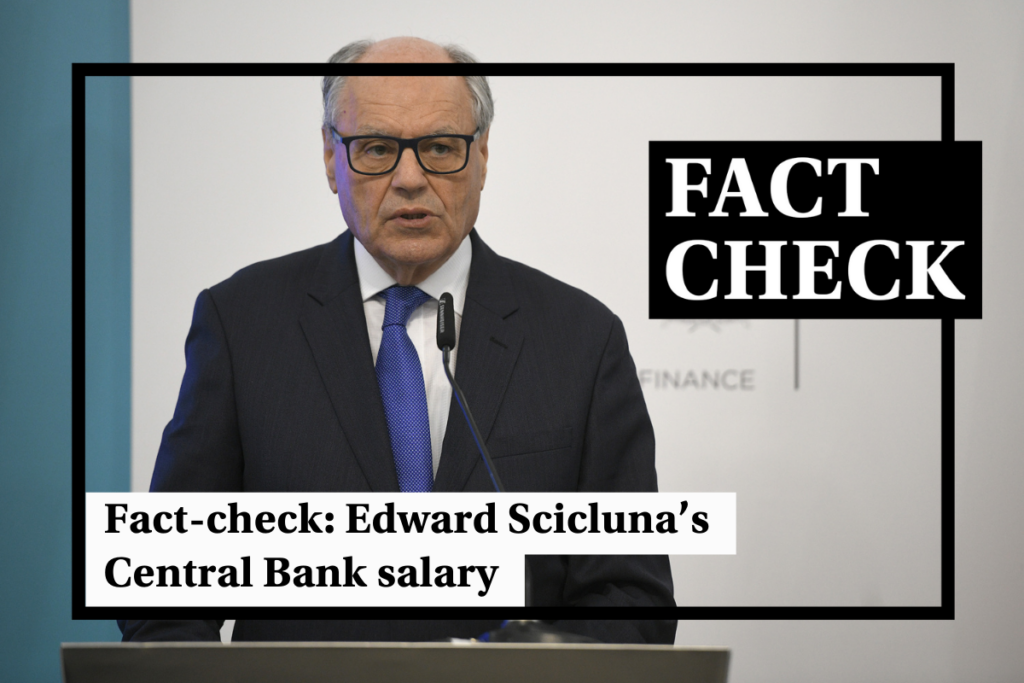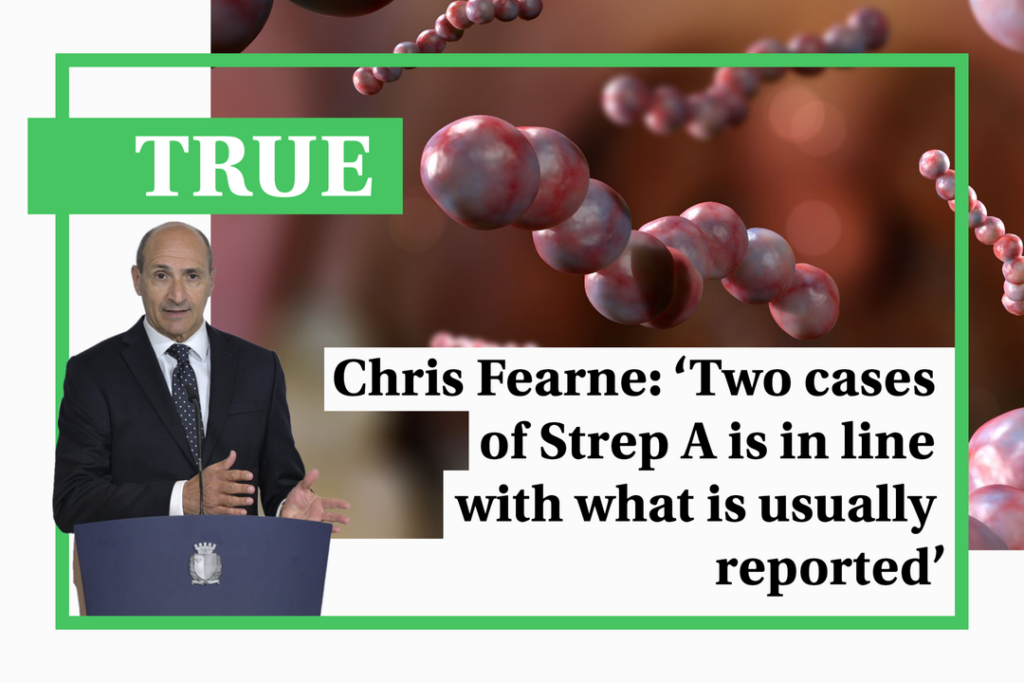After a week-long to-and-fro with Cabinet, Edward Scicluna agreed to temporarily step aside from his role at the helm of Malta’s Central Bank on Tuesday evening.
Scicluna has served as the Central Bank’s governor since 2021, but has faced calls to step down from the role ever since he was criminally charged for his alleged role in the fraudulent concession of three of Malta’s hospitals to a private consortium. At the time of the deal, Scicluna was Malta’s finance minister.
These calls intensified over the past week, after Maltese courts found that there was enough prima facie evidence for Scicluna to face trial.
But Scicluna, who has proclaimed his innocence throughout the whole affair, has stood firm.
A protracted impasse ensued, with everyone, from Prime Minister Abela to opposition leader Bernard Grech saying that Scicluna should step down.
Matters came to a head during a lengthy Cabinet meeting on Tuesday 30 July, during which an agreement for Scicluna to temporarily step aside from his role pending court proceedings was reached.
Shortly after the meeting, Robert Abela confirmed that the agreement, which was reached “by mutual consent”, will see Scicluna retaining his same employment conditions, effectively placing him on gardening leave where he is entitled to the same salary and perks he received throughout his tenure.
This led to fervent speculation over how much exactly Scicluna earns and what he is owed for the remainder of his tenure.
What is Scicluna’s pay packet?
A reply to a parliamentary question several years ago sheds some light on this.
In early 2021, Finance Minister Clyde Caruana told parliament that the Central Bank governor receives a basic pay of €115,000 and a 20% “responsibility allowance” (some €23,000).
In total, this brings Scicluna’s salary up to €138,000 per year.
At the time, this represented a significant bump over what his predecessor, economist Mario Vella, received.
In the same parliamentary reply, Caruana revealed that previously the governor received a €100,000 pay packet, without the additional responsibility allowance.
This means that Scicluna’s salary is some €38,000 higher than that of his predecessor.
The salary bump was down to a discrepancy between the pay of Central Bank deputy governors and chief officers at MFSA, Caruana explained.
Once the Central Bank’s deputy governors had their pay upped to match those of MFSA chief officers, the Central Bank governor’s pay was also bumped up to maintain “relativity” with his deputies, he said.
Scicluna’s salary isn’t believed to have changed since 2021, with Caruana confirming as much in a reply to another parliamentary question about the matter last year.
Scicluna is a little over three and a half years into his five-year tenure which is will end on 31st December 2025. This means that Scicluna is owed some €195,500 between now and when his term expires.
What about perks and pensions?
Although his pay increased, Scicluna kept the same fringe benefits as his predecessor, many of which are customary in high-ranking public roles.
So Scicluna has access to the use of a car, has his telephone and WiFi bills covered and benefits from a medical insurance plan. These are set to remain in place throughout his suspension.
According to reports in The Shift News, Scicluna also received a yearly €12,000 honoraria for sitting on the MFSA board of governors, as is customary for Central Bank governors.
But Scicluna has likely already lost this honoraria when he was axed from the board last week.
His Central Bank salary isn’t his only income.
Having served as an MEP between 2009 and 2013, Scicluna also receives an MEP’s pension, roughly equivalent to some 3.5% of his salary as an MEP for each full year in office. At the time of Scicluna’s election to the European Parliament, an MEP’s pre-tax salary was in the region of €92,000 annually.
But sources told Times of Malta that Scicluna does not receive a pension as a former member of Cabinet, as would typically be the case, having joined Cabinet after the pensionable age of 61.





